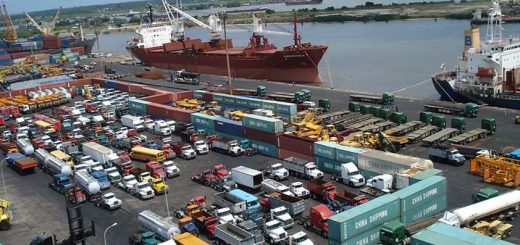Unregulated Freight Forwarders In The Nigerian Logistics Space

Freight forwarders, forwarding agents or Non-Vessel Operating Common Carriers (NVOCCs) are primarily in the business of organizing shipments for either organizations or individuals on import and export basis. Ideally, all these activities are conducted within the limits country-specific laws, regulations and in line with global best practice. While it is true that freight forwarding regulations are designed to control the activities of freight forwarders around the world, many ‘forwarders’ have become agents of disorder and in direct contention with established rules and regulations.
Unregulated and self-serving agents (posing as freight forwarders) is one of the major challenges confronting freight forwarding in Nigeria and this is largely responsible for how the Nigeria freight forwarding industry is perceived globally. However, there are a good number of indigenous companies, that have excellent record of compliance; the requisite structures, processes, expertise, capacity, and experienced manpower to handle diverse freight-related transactions.
A clear understanding of these contending realities would serve as a guide to local and multinational companies; international partners and affiliates who are already engaging or yet to decide on engaging a Nigerian forwarder. Having said that, attention must be paid to the following commonest attributes of unregulated freight forwarders within the Nigerian logistics space.
Attributes of Unregulated Freight Forwarders Within Nigeria
- Non-Compliance with regulatory requirements: This is very common and two major factors are largely responsible to its pervasiveness. The first is, lack of firm regulation and the second is corrupt regulatory agents who connive with forwarders to pervert established rules and procedures.
- Lack of transparency: Transactions with this category of forwarders are usually shrouded in a lot of dishonesty; mostly evident in false declarations and undervaluation which when discovered by the authorities would attract huge penalties, leading to additional charges or even confiscation of cargo.
- Poor cargo handling: Most of them lack the capacity and technical competence in cargo handling and this exposes shippers to a lot of costly and avoidable damages.
- Liability: These agents have little or no liabilities at any stage of their operation. Most of them have their entire offices in a suitcase. That creates the opportunity to connive with corrupt regulatory agents, who take advantage of the gaps in the system to cheat.
- Lack of technical knowledge in managing the complexities of global logistics – including documentation, shipment coordination and offering the right advice to shippers.
- Poor information management and feedback systems, leading to wrong shipping, booking and delivery information.
Fears about these commonest attributes in the Nigerian logistics space have persisted among global traders either due to a previous negative experience; general perception of the Nigerian industry from a global media perspective or otherwise. Though there are bases for these doubts, the Nigerian logistics space is characterized by two categories of forwarders. One is a bunch of self-serving, non-compliant and inept forwarders, while the other is an organized set of highly compliant, well structured, and highly competent forwarders. What this means is that if you’re interested in engaging a Nigerian forwarder, you must understand that there are as many trustworthy forwarders as there are shady ones.
Dealing with unregulated freight agents is a major challenge to every well-meaning person in the Nigerian logistics space because they have practically brought this industry to its knees and have caused great reputational damage, as well as how it is perceived globally. How do you deal with agents who hardly own any offices; with no clearly defined structure or processes; with entire offices in their suitcases?
The problem here has never been lack of legal framework to regulate the business of freight forwarding in Nigeria but firm application and enforcement of these rules by regulatory agencies. One is now moved to suggest that the Shippers’ Council should be empowered to enforce firm regulatory policies to ensure that freight forwarding in Nigeria is regulated to the extent that every intending or existing forwarder or forwarding agent meets all the basic requirements for operating in the industry. That way, we can have industry that is largely known for compliance, transparency and to the positive outlook of the industry as a whole.



